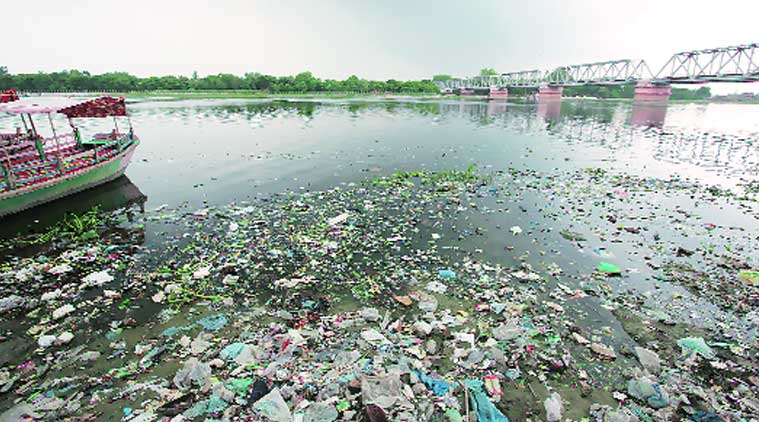Stay updated with the latest - Click here to follow us on Instagram
Seven years jail, Rs 10 cr fine to make industries clean up act
The proposed Environmental Laws (Amendment) Bill inserts “substantial damage” as an act of violation, omission or negligence by which the community at large is affected due to pollution damage to land, air or water.
 The proposed Environmental Laws (Amendment) Bill inserts “substantial damage” as an act of violation, omission or negligence by which the community at large is affected due to pollution damage to land, air or water.
The proposed Environmental Laws (Amendment) Bill inserts “substantial damage” as an act of violation, omission or negligence by which the community at large is affected due to pollution damage to land, air or water.Shifting gears to accelerate the Swachh Bharat Abhiyan, the government, besides levying spot fines on people polluting public places, will crack down on industries causing “substantial damage” to environment with minimum imprisonment of seven years and a fine of Rs 10 crore and above.
This will be over and above the monetary penalty imposed on the basis of the extent to which the damage has occurred. Different rates have been proposed, based on the extent of the area which gets polluted. (See box).
The proposed Environmental Laws (Amendment) Bill inserts “substantial damage” as an act of violation, omission or negligence by which the community at large is affected due to pollution damage to land, air or water.
Depending on its extent, a monetary penalty will be imposed by an adjudicating officer appointed by the Centre. At present, the state government has powers to close or cancel the authorisation to run a polluting factory or hospital. Or stop its supply of electricity, water or any other service.
This penalty can be appealed at the National Green Tribunal within 90 days of the adjudication but only after depositing 75 per cent of the fine into the Consolidated Fund of India.
[related-post]
A new provision will be brought in to make non-payment of the monetary penalty a criminal offence and the polluting company and its officials will be held responsible.
A company will have to pay at least Rs 5 crore and, in case of continued failure, an additional fine of Rs 50 lakh per day. In case of individuals, non-payment will lead to imprisonment for at least a month, extendable up to three years, with the same quantum of monetary fine.
Section 17 specifies that the head of the department/ in-charge of a small unit may be liable for punishment if the owner/ occupier produce enough evidence of innocence.
The rationale behind introducing hefty fines first is to ensure monetary deterrent for violators and compliance to pollution norms.
“The Environment (Protection) Act does not allow civil financial penalties to usher in active enforcement of environment laws. And the existing criminal settlement alone is not proving effective. Industries find it easier to defy and violate pollution control measures rather than comply,” sources said.
Any pollution violation incident lands up in court where legal battles go on endlessly. The fine is Rs 1 lakh on conviction with additional fine of Rs 5,000 per day in case the polluter continues to violate norms.
“Factories find it more conducive to pay the fine rather than take expensive corrective measures,” sources said.
After the proposed amendment, civil monetary penalty will be first levied based on the extent of damage, followed by criminal proceedings.
Criminal penal provisions are also being amended to raise the minimum sentence to seven years (from five years or less) with fine not less than Rs 10 crore (from up to Rs 1 lakh).
In case the polluter fails to clean up the environment damage or correct its performance, the additional fine will be Rs 50 lakh per day (from Rs 5,000 per day).
The penalty on pollution which do not cause substantial damage will start from Rs 1 lakh and extend up to Rs 10 crore with a further penalty of Rs 10,000 per day during the time the breach continues.








